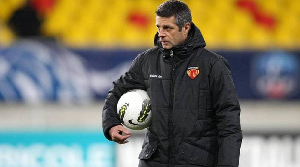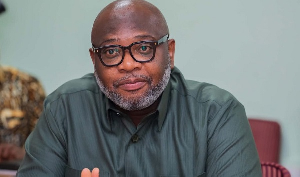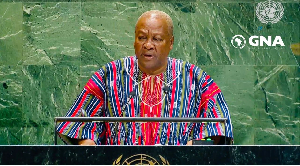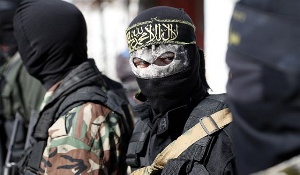Ho, Oct. 19, GNA - Academicians from the country's universities and research institutes have begun a meeting in Ho to design syllabuses on Peace and Conflict Studies for tertiary schools in the country. During the consultative three-day meeting, participants including conflict analysts from Security and Dialogue brooking institutions would brainstorm on study profiles to be taught at the tertiary level. The workshop is under the aegis of the Legon Centre for International Affairs (LECIA), with sponsorship from the United Nations Development Programme (UNDP).
Papa Owusu Ankomah, Minister of Education Science and Sports, in a speech read on his behalf by Mr Kwamina Akwa, Director of Administration at the Ministry said, "work has already advanced on mainstreaming peace and conflict studies in the syllabuses of primary schools". He said the Ministry in consultation with other stakeholders had designed a manual for primary schools while efforts were going on to "inject peace and conflict studies in the syllabus of teacher training colleges".
Paapa Owusu Ankomah said it was imperative that the workshop would strengthen the study base on peace and conflict in tertiary schools to "ensure a constant stream of qualified resource persons for the lower levels of the educational system".
He said government realized the "absolute need for peace and conflict studies to be mainstreamed into the syllabuses of educational institutions".
Ms Linda Darkwa, Research Fellow at LECIA said Africa, which some years ago was "infamously famous", for conflicts at one time had to grapple with 15 conflicts.
She said currently there were only three raging. Ms Darkwa said the raging conflicts must be ended, rebuilding done in all the areas where peace had returned, peace sustained and further conflict prevented.
She said this called for ingraining the culture of channelling grievances towards harmonious and peaceful processes of resolution in the people.
Mr Dauda Toure UN Resident Coordinator and UNDP Resident Representative in Ghana acknowledged that Ghana was an oasis of stability in an unstable sub-region.
He said, however, that there were pockets of low-level conflicts, which were becoming protracted and sapping the energies and resources of states.
Mr Toure quoting a former Minister of Interior said "it cost government more that 72 billion cedis to maintain a peace keeping presence in Dagbon in three years.
He said official responses to many of the conflicts had been "law and order based" with the police sent to keep law and order and no sustained efforts made to engage bickering factions on the structural and other issues underlying the conflict. Mr Toure said it was only through quality analysis that it would be possible to identify the right policy and operational responses to the conflicts in different parts of the country.
He pledged the UNDP's support for the peace building efforts in the country, which he said would provide foundation for more research, writing and publications on conflict issues in Ghana. 19 Oct. 06
General News of Thursday, 19 October 2006
Source: GNA












